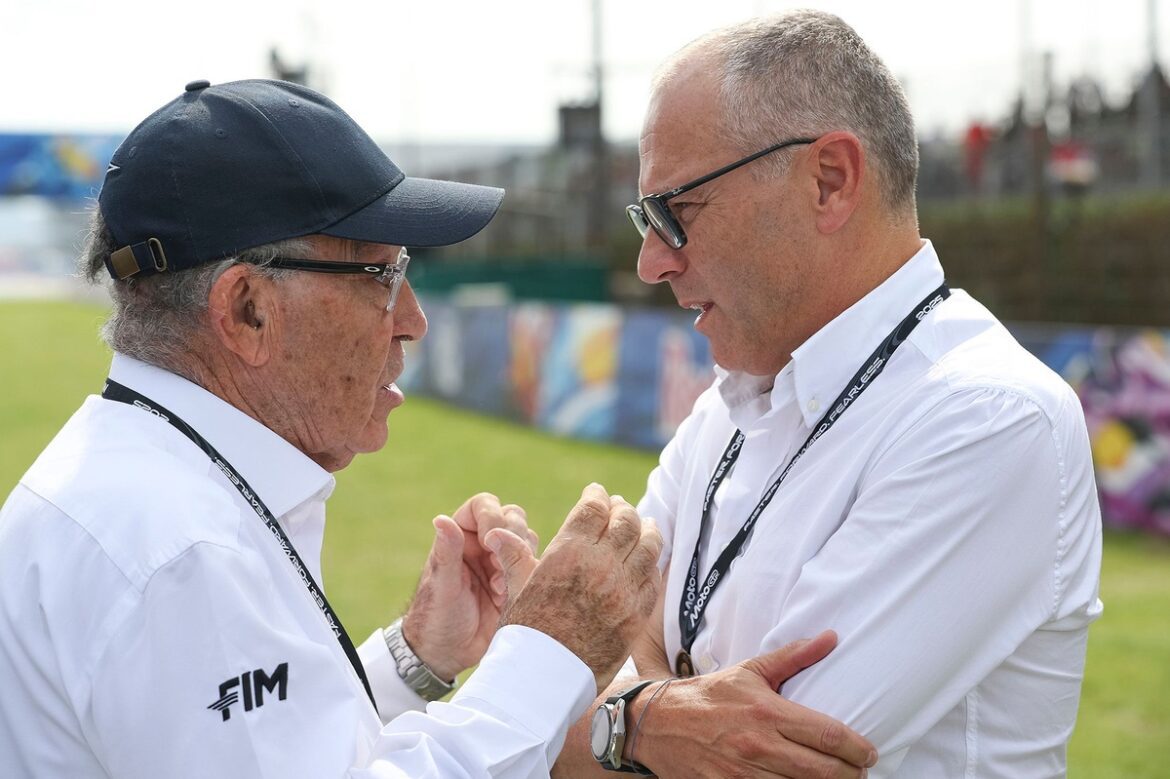Liberty Media’s Strategy Shift in MotoGP: A New Era After Acquisition
In recent months, Liberty Media has been quietly reshaping the landscape of MotoGP following its acquisition of a significant stake in Dorna Sports. This change comes on the heels of the European Commission’s approval of Liberty Media’s purchase of 84% of Dorna, which manages the commercial rights to the MotoGP series. With this acquisition completed in July, Liberty Media is beginning to unveil its plans for the championship, aiming to enhance its global appeal and operational efficiency.
A Strategic Overview of Liberty Media’s Involvement
Liberty Media, well-known for its ownership of Formula 1, has approached its new venture in MotoGP with a strategic mindset. The company has not rushed to make drastic changes but has instead opted for a methodical approach to understand the intricacies of the MotoGP paddock. In attendance at the recent San Marino Grand Prix were key figures from Liberty Media, including Stefano Domenicali, the president and CEO of Formula 1, who appeared alongside prominent figures from the sport, such as Paolo Campinoti, owner of the Pramac team, and Massimo Rivola, CEO of Aprilia Racing.
The presence of these executives underscores Liberty’s commitment to gaining a deep understanding of MotoGP’s operations. Over the weekend, several Liberty Media executives engaged with the paddock, while a team from Ernst & Young conducted interviews with Dorna staff to assess the various aspects of the championship’s operations.
Expanding the Workforce at Dorna
Since Liberty Media finalized its acquisition, Dorna has seen significant changes, particularly in staffing. Reports indicate that at least ten new employees have been added to the Dorna team, with a majority focused on enhancing the marketing department. This expansion is a clear indication of Liberty’s intent to boost MotoGP’s visibility and marketability on a global scale.
Key Changes to Race Weekends
As part of the new strategy, several modifications to the format of race weekends have been announced. Some changes, such as the introduction of a new pre-race ceremony that gathers all riders at the front of the grid for the national anthem—similar to practices in Formula 1—have already been implemented mid-season. Other changes, like the discontinuation of the MotoE World Cup, will take effect next year, with the series being replaced by the Harley-Davidson Cup.
The ongoing dialogue between Dorna and Liberty Media has been fruitful, with discussions spanning various departments, including finance, marketing, and technology. This collaboration aims to create synergies that will address the challenges currently facing MotoGP.
Enhancing the Viewing Experience
One of the most notable initiatives under Liberty Media’s influence is the development of a new over-the-top (OTT) streaming platform. This platform is designed to improve user experience significantly and eliminate service interruptions by 2026. Recent meetings between Dorna and Liberty executives in the UK—home to F1’s broadcasting operations—have intensified as they work to finalize this new digital offering.
Branding and Marketing Strategies
From a branding perspective, Liberty Media’s strategy appears to focus on elevating the status of the premier MotoGP class while positioning Moto2 and Moto3 as secondary categories. This approach mirrors the structure observed in Formula 1, where F2 and F3 serve as developmental series. Starting in 2026, MotoGP teams will benefit from expanded garage spaces at race circuits, while junior classes will transition to temporary facilities, reflecting the current practices at select venues.
Dorna has also been proactive in advising broadcasters to highlight achievements in the MotoGP class more prominently than those in the lower categories. For instance, should Marc Marquez secure his title in Motegi, he would be recognized exclusively as a seven-time MotoGP world champion, with no mention of his previous titles in Moto3 and Moto2. This focus on the premier class is part of a broader initiative to elevate MotoGP’s brand identity.
Establishing the MotoGP Hall of Fame
In a bid to create a more exclusive atmosphere around the MotoGP brand, Dorna has introduced the MotoGP Hall of Fame. This new recognition is reserved for riders who have achieved at least two premier-class titles or secured 24 victories. The Hall of Fame aims to establish a distinguished elite within the sport, elevating the MotoGP brand beyond the traditional legends recognized in the racing community.
Future Prospects for MotoGP
The strategic direction being charted by Liberty Media promises a transformative era for MotoGP. This evolution is not just about enhancing the sport’s operational capabilities but also about maximizing its commercial potential. As Liberty Media continues to integrate its practices and philosophies into MotoGP, stakeholders in the racing community are keen to see how these changes will unfold in the coming seasons.
The backdrop of Liberty’s acquisition and subsequent plans highlights the dynamic nature of motorsport management and the continuous evolution of how sports are marketed and presented to audiences worldwide. As MotoGP moves forward, the influence of Liberty Media is likely to be felt across various facets of the sport, from race day experiences to broadcasting innovations.
Conclusion
The ongoing developments within MotoGP under Liberty Media’s stewardship represent a significant shift in the landscape of motorcycle racing. With a renewed focus on branding, operational efficiency, and enhancing the fan experience, the future of MotoGP looks promising. As the new strategies take root, the championship is poised to reach new heights in popularity and recognition, mirroring the successful trajectory of its four-wheeled counterpart, Formula 1.
In summary, Liberty Media’s involvement in MotoGP is set to redefine how the sport operates and is perceived globally. With careful planning and execution, the potential for growth and increased engagement with fans is immense, paving the way for a new era in motorcycle racing.
